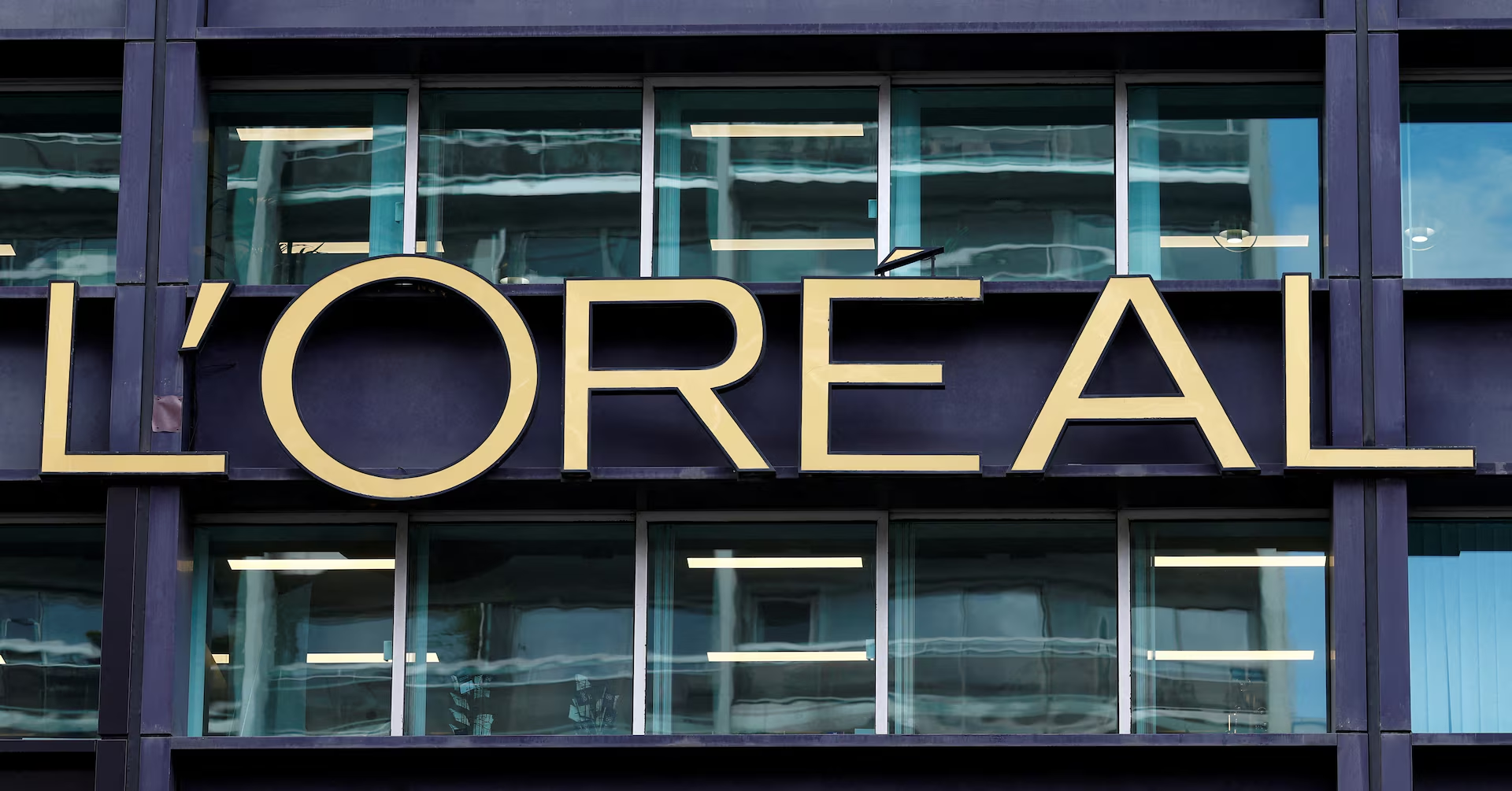
Kering agrees to sell beauty unit to L’Oreal for $4.7 billion as De Meo trims debt
Item 1 of 3 The logo of French cosmetics Groupe L’Oreal is seen on the L’Oreal group’s headquarters building in Clichy, near Paris, France, April 14, 2025. REUTERS/Stephanie Lecocq/File Photo
Under the deal, French beauty giant L’Oreal will acquire Kering’s fragrance line Creed, as well as rights to develop fragrance and beauty products under Kering’s fashion labels Gucci, Bottega Veneta and Balenciaga under a 50-year exclusive license.
Sign up here.
The sale is a significant step towards reducing Kering’s net debt, which stood at 9.5 billion euros at the end of June, on top of 6 billion euros in long-term lease liabilities, sparking investor concern.
It is also a major shift in direction by De Meo less than two months after taking the helm, as he unwinds one of the biggest strategic pivots made by his predecessor Francois-Henri Pinault, whose family controls the group, in recent years.
Kering set up its beauty business in 2023 after acquiring perfume maker Creed for 3.5 billion euros in an effort to diversify and reduce its reliance on its Gucci brand, which accounts for most of its profits. But the group has struggled to ramp up the business, posting a 60 million euro operating loss for the first half of the year.
The company is also battling declining growth at its largest brand Gucci, which was hit hard by slowing demand in the key Chinese market. Gucci’s revenue year-on-year in the last reported quarter, increasing the pressure on Kering to deleverage to avoid further credit downgrades.
“We believe selling Kering Beauté at around the same price paid for Creed two years ago is bitter but necessary medicine,” said analysts at Bernstein.
A move back to beauty licensing would be “less capital intensive, less operationally geared, and arguably higher margin”, said analysts at RBC, ahead of the deal, even if it has to share revenues with L’Oreal.
“We also believe it indicates a strategic re-focus towards its core competencies in soft luxury and any beauty divestment may free up investment headroom towards these priorities, ” they wrote in a note to investors.
L’Oreal, the world’s biggest dedicated cosmetics and beauty player, already produces blockbuster perfumes under the Yves Saint Laurent label after acquiring rights to the brand from Kering for 1.15 billion euros in 2008. The two companies also said they were setting up a joint venture to provide experiences and services for luxury clients.
The deal for Kering beauty will be L’Oreal’s largest to date, bigger than its purchase of Australian brand Aesop for $2.5 billion in 2023. It is expected to close in the first half of 2026.
“L’Oreal enjoys strong momentum in the Luxe division and they must be looking forward to getting hold of the perfume and beauty licences associated with Kering’s prestigious yet relatively underdeveloped brands,” said Bruno-Roland Bernard, a consultant and adjunct professor for corporate finance and luxury management at Paris-based Institut Francais de la Mode.
“It’s also possible they are taking advantage of a favourable bargaining position – with limited competition: who has the credentials and the firepower to deal with a Kering under time pressure?”
L’Oreal, which has said there were “plenty” of acquisitions being looked at this year, has also been , Reuters reported this month, after the beauty conglomerate was named in the will of late designer Giorgio Armani as one of the preferred buyers for a minority stake in his fashion house.
($1 = 0.8576 euros)
Reporting by Dominique Patton and Tassilo Hummel in Paris, Anusha Shah in Bengaluru; Editing by Edmund Klamann, Diane Craft and Lincoln Feast.
Our Standards: The Thomson Reuters Trust Principles.
First Appeared on
Source link






